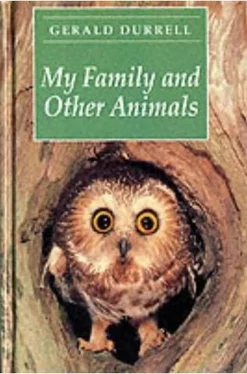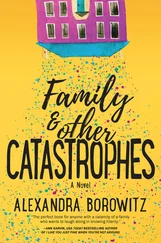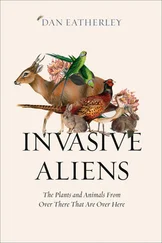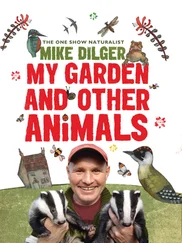Gerald Durrell - My family and other animals
Здесь есть возможность читать онлайн «Gerald Durrell - My family and other animals» весь текст электронной книги совершенно бесплатно (целиком полную версию без сокращений). В некоторых случаях можно слушать аудио, скачать через торрент в формате fb2 и присутствует краткое содержание. Жанр: Природа и животные, на английском языке. Описание произведения, (предисловие) а так же отзывы посетителей доступны на портале библиотеки ЛибКат.
- Название:My family and other animals
- Автор:
- Жанр:
- Год:неизвестен
- ISBN:нет данных
- Рейтинг книги:3 / 5. Голосов: 3
-
Избранное:Добавить в избранное
- Отзывы:
-
Ваша оценка:
- 60
- 1
- 2
- 3
- 4
- 5
My family and other animals: краткое содержание, описание и аннотация
Предлагаем к чтению аннотацию, описание, краткое содержание или предисловие (зависит от того, что написал сам автор книги «My family and other animals»). Если вы не нашли необходимую информацию о книге — напишите в комментариях, мы постараемся отыскать её.
My family and other animals — читать онлайн бесплатно полную книгу (весь текст) целиком
Ниже представлен текст книги, разбитый по страницам. Система сохранения места последней прочитанной страницы, позволяет с удобством читать онлайн бесплатно книгу «My family and other animals», без необходимости каждый раз заново искать на чём Вы остановились. Поставьте закладку, и сможете в любой момент перейти на страницу, на которой закончили чтение.
Интервал:
Закладка:
'After all, dear, that costume doesn't cover an awful lot, does it?' she pointed out.
'Oh, Mother, don't be so old-fashioned,' Margo said impatiently. 'After all, you only die once.'
This remark was as baffling as it was true, and successfully silenced Mother.
It had taken three husky peasant boys half an hour's sweating and panting to get Larry's trunks into the villa, while Larry bustled round them, directing operations. One of the trunks was so big it had to be hoisted in through the window. Once they were installed, Larry spent a happy day unpacking them, and the room was so full of books that it was almost impossible to get in or out. Having constructed battlements of books round the outer perimeter, Larry would spend the whole day in there with his typewriter, only emerging dreamily for meals. On the second morning he appeared in a highly irritable frame of mind, for a peasant had tethered his donkey just over the hedge. At regular intervals the beast would throw out its head and let forth a prolonged and lugubrious bray.
'I ask you! Isn't it laughable that future generations should be deprived of my work simply because some horny-handed idiot has tied that stinking beast of burden near my window?' Larry asked.
'Yes, dear,' said Mother; 'why don't you move it if it disturbs you?’
'My dear Mother, I can't be expected to spend my time chasing donkeys about the olive-groves. I threw a pamphlet on Christian Science at it; what more do you expect me to do?'
'The poor thing's tied up. You can't expect it to untie itself,' said Margo.
'There should be a law against parking those loathsome beasts anywhere near a house. Can't one of you go and move it?'
'Why should we? It's not disturbing us,' said Leslie.
'That's the trouble with this family,' said Larry bitterly: 'no give and take, no consideration for others.'
'You don't have much consideration for others,' said Margo.
'It's all your fault, Mother,' said Larry austerely; 'you shouldn't have brought us up to be so selfish/
'I like that!' exclaimed Mother. 'I never did anything of the sort!'
'Well, we didn't get as selfish as this without some guidance,' said Larry.
In the end, Mother and I unhitched the donkey and moved it farther down the hill.
Leslie meanwhile had unpacked his revolvers and startled us all with an apparently endless series of explosions while he fired at an old tin can from his bedroom window. After a particularly deafening morning, Larry erupted from his room and said he could not be expected to work if the villa was going to be rocked to its foundations every five minutes. Leslie, aggrieved, said that he had to practise. Larry said it didn't sound like practice, but more like the Indian Mutiny. Mother, whose nerves had also been somewhat frayed by the reports, suggested that Leslie practise with an empty revolver. Leslie spent half an hour explaining why this was impossible. At length he reluctantly took his tin farther away from the house where the noise was slightly muffled but just as unexpected.
In between keeping a watchful eye on us all, Mother was settling down in her own way. The house was redolent with the scent of herbs and the sharp tang of garlic and onions, and the kitchen was full of a bubbling selection of pots, among which she moved, spectacles askew, muttering to herself. On the table was a tottering pile of books which she consulted from time to time. When she could drag herself away from the kitchen, she would drift happily about the garden, reluctantly pruning and cutting, enthusiastically weeding and planting.
For myself, the garden held sufficient interest; together Roger and I learnt some surprising things. Roger, for example, found that it was unwise to smell hornets, that the peasant dogs ran screaming if he glanced at them through the gate, and that the chickens that leapt suddenly from the fuchsia hedge, squawking wildly as they fled, were unlawful prey, however desirable.
This doll's-house garden was a magic land, a forest of flowers through which roamed creatures I had never seen before. Among the thick, silky petals of each rose-bloom lived tiny, crab-like spiders that scuttled sideways when disturbed. Their small, translucent bodies were coloured to match the flowers they inhabited: pink, ivory, wine-red, or buttery-yellow. On the rose-stems, encrusted with green flies, lady-birds moved like newly painted toys; lady-birds pale red with large black spots; lady-birds apple-red with brown spots; lady-birds orange with grey-and-black freckles. Rotund and amiable, they prowled and fed among the anaemic flocks of greenfly. Carpenter bees, like furry, electric-blue bears, zigzagged among the flowers, growling fatly and busily. Humming-bird hawk-moths, sleek and neat, whipped up and down the paths with a fussy efficiency, pausing occasionally on speed-misty wings to lower a long, slender proboscis into a bloom. Among the white cobbles large black ants staggered and gesticulated in groups round strange trophies: a dead caterpillar, a piece of rose-petal, or dried grass-head fat with seeds. As an accompaniment to all this activity there came from the olive-groves outside the fuchsia hedge the incessant shimmering cries of the cicadas. If the curious, blurring heat-haze produced a sound, it would be exactly the strange, chiming cries of these insects.
At first I was so bewildered by this profusion of life on our very doorstep that I could only move about the garden in a daze, watching now this creature, now that, constantly having my attention distracted by the flights of brilliant butterflies that drifted over the hedge. Gradually, as I became more used to the bustle of insect life among the flowers, I found I could concentrate more. I would spend hours squatting on my heels or lying on my stomach watching the private lives of the creatures around me, while Roger sat nearby, a look of resignation on his face. In this way I learnt a lot of fascinating things.
I found that the little crab-spiders could change colour just as successfully as any chameleon. Take a spider from a wine-red rose, where he had been sitting like a bead of coral, and place him in the depths of a cool white rose. If he stayed there - and most of them did - you would see his colour gradually ebb away, as though the change had given him anaemia, until, some two days later, he would be crouching among the white petals like a pearl.
I discovered that in the dry leaves under the fuchsia hedge lived another type of spider, a fierce little huntsman with the cunning and ferocity of a tiger. He would stalk about his continent of leaves, eyes glistening in the sun, pausing now and then to raise himself up on his hairy legs to peer about. If he saw a fly settle to enjoy a sun-bath he would freeze; then, as slowly as a leaf growing, he would move forward, imperceptibly, edging nearer and nearer, pausing occasionally to fasten his life-line of silk to the surface of the leaves. Then, when close enough, the huntsman would pause, his legs shift minutely as he got a good purchase, and then he would leap, legs spread out in a hairy embrace, straight on to the dreaming fly. Never did I see one of these little spiders miss its kill, once it had manoeuvred into the right position.
All these discoveries filled me with a tremendous delight, so that they had to be shared, and I would burst suddenly into the house and startle the family with the news that the strange, spiky black caterpillars on the roses were not caterpillars at all, but the young of lady-birds, or with the equally astonishing news that lacewing-flies laid eggs on stilts. This last miracle I was lucky enough to witness. I found a lacewing-fly on the roses and watched her as she climbed about the leaves, admiring her beautiful, fragile wings like green glass, and her enormous liquid golden eyes. Presently she stopped on the surface of a rose-leaf and lowered the tip of her abdomen. She remained like that for a moment and then raised her tail, and from it, to my astonishment, rose a slender thread, like a pale hair. Then, on the very tip of this stalk, appeared the egg. The female had a rest, and then repeated the performance until the surface of the rose-leaf looked as though it was covered with a forest of tiny club moss. The laying over, the female rippled her antennae briefly and flew off in a mist of green gauze wings.
Читать дальшеИнтервал:
Закладка:
Похожие книги на «My family and other animals»
Представляем Вашему вниманию похожие книги на «My family and other animals» списком для выбора. Мы отобрали схожую по названию и смыслу литературу в надежде предоставить читателям больше вариантов отыскать новые, интересные, ещё непрочитанные произведения.
Обсуждение, отзывы о книге «My family and other animals» и просто собственные мнения читателей. Оставьте ваши комментарии, напишите, что Вы думаете о произведении, его смысле или главных героях. Укажите что конкретно понравилось, а что нет, и почему Вы так считаете.











